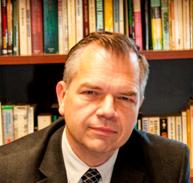One of the most oft-quoted passages in books on calling is a phrase by Frederick Buechner, the prolific and skilled American theologian and writer. In Wishful Thinking: A Theological ABC (New York, NY: Harper and Row, 1973) he proclaims: “The place God calls you to is the place where your deep gladness and the world’s deep hunger meet.” (p. 95). Unfortunately, this is the art of expression at the expense of accuracy.
The phrase appears regularly in books on calling. For example, the Buechner phrase is quoted in William Placher, Callings: Twenty Centuries of Christian Wisdom on Vocation, with a view that there “is a fit between things that need doing and the person I am meant to be. Finding such a fit, I find my calling.” Placher dilutes the meaning of the Buechner phrase in order to deliver some value, making a simple connection between the fact that something needs to be done and the fact that someone can do it.
The Buechner phrase is quoted in Kevin and Kay Marie Brennfleck’s book titled, Live Your Calling. They quote that phrase and explain its significance in a very general manner. They understand this phrase to mean that you discover the skills you love using (“your deep gladness”) and the particular needs (the “world’s deep hunger”) you are enthusiastic about serving directs you towards your vocational calling.
The Buechner passage is also quoted by Bryan J. Dik in Make Your Job A Calling with the comment that: “This connection is a necessary condition, without which engagement is short-lived.” In other words, your passion will dissipate if there is not positive reinforcement to what you are doing.
While each of the writers above take the Buechner phrase and try to find some application, the phrase at its core is misleading. When Buechner talks of “deep gladness” what does he mean? Is it simply a form of happiness? Let’s hope not. If the reference is in relation to God-designed passion then it rings true. Calling is rooted in passion. The second part about “the world’s deep hunger” is problematic. The world has many deep hungers; too many to number. Should a person aspire to tackling that?
A deeper understanding of calling is required. Our calling is directed by our gifting, circumstances, affirmation and many more factors—not by the world’s deep hunger. Our callings are rooted in our gifts, which are given for a purpose—to be useful. The type of usefulness is view in the context of God’s purposes. Many and indeed most calling do not address the world’s deep hunger. They may not be so grandiose as to deal with the world or one if’s most pressing needs. Instead, many callings appear externally to be mundane, but in God’s ideas are addressing an important need.
A calling, for example, may be teaching a second language to immigrants and helping with their adjustment to a new society. A calling may mean being a nurse and providing exception care and concern for patients. A calling may involve being a used car salesperson who has the ability to impact positively a range of people with good ethical standards. None of these involve the world’s deep hunger. Instead, they are among the many needs that the whole people of God can address.
The other element is to look at how a person’s calling is connected to needs in the community. A calling is not focused on the need first, but rather calling. Don’t get enamoured with needs, but rather your abilities which will shape your success at addressing those needs. What is the world’s deepest need? It is the intractable challenges of Africa? A person in the First World could get excited and go there to help. Will they be optimally effective? If some feel so called, that is great—but it will be a precious few so called.
In short, the problem is that the phase, while compelling, is misleading, and only valuable in broad outline. Your calling is rooted in a passion which addresses a need. This is the divine affirmation of the importance of calling and its ongoing affirmation.
